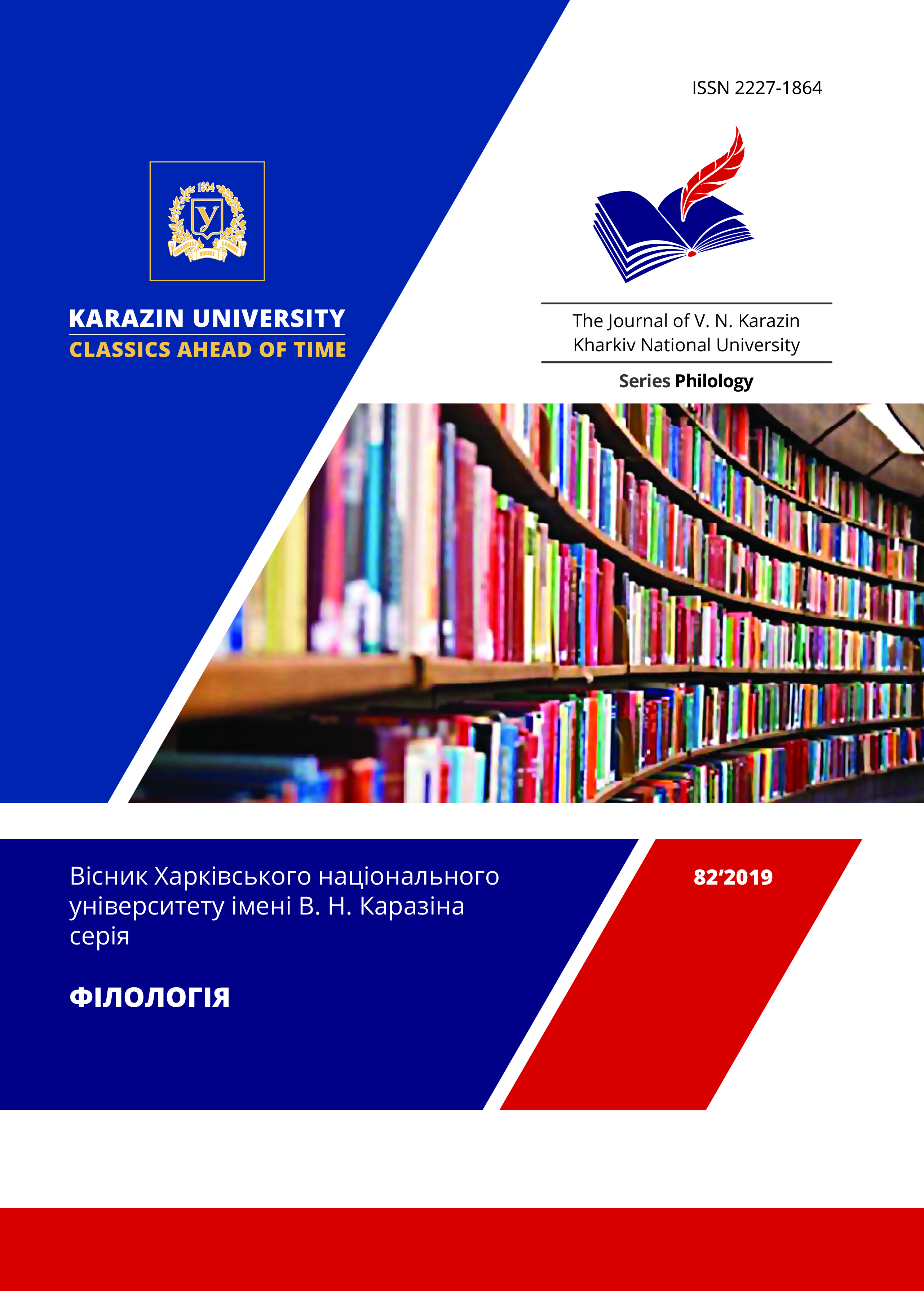The idea of the eternal return in flash fiction of symbolists and the types of its functioning contexts
Abstract
The article identifies the types of contexts in which the idea of the eternal return in the small prose symbolists functions.
The first type of contexts includes works based on pretext. F. Sologub transposes evangelical plots into modernity and, relying on the Nietzschean idea of eternal return, emphasizes their importance for the present. In the novel "Lohengrin" Sologub transposes R. Wagner's legendary mythological plot, borrowed from medieval German legends and tales, into the modern bourgeois world, revealing the correspondences between the past and the present. Appeal to allusions and reminiscences in characterizing the characters helps the author to show their difference from the characters of Wagner's opera.
The second type of contexts is formed by novels in which writers create their own myths. This is “Princess Zara” by N. Gumilyov, “Inventions (Evening story)” by Z. Gippius and “The Marble Head” by V. Bryusov.
In “Princess Zara”, author offers an elegant myth about the immaculate beauty of the Light Virgin of the forests, which periodically changes the outer shell. His myth Gumilyov interweaves in a picturesque view, rich in African exotic and actualizing the sight, hearing, touch and smell of the reader.
In the novel "Fiction" Gippius creates a paradoxical situation where the heroine, on the threshold of adulthood, learns about it in every detail, which allows the writer to raise the question of whether a person needs or does not need to know her future and if it is possible to vary and comprehend own life.
“The Marble Head” of Bryusov is a complex “text-myth”, written in the form of rondo, which is artistically organized by symbolist ideas about the role of Beauty / Art in human life and about contrasting Beauty with the gray prose of life. "Marble head" can be viewed as a novel of the insight conflict, revealing the moral and psychological crisis of hero. The development of the novel internal conflict is plotted by Bryusov in a form that is based on the representation of V. Solovyov on the triadic nature of world development: thesis – antithesis – synthesis.
Downloads
References
Bryusov, V.YA. (1993). Ognennyy angel: Roman, povesti, rasskazy [Fiery Angel: Novel, novels, stories]. Saint Petersburg: Severo-Zapad.
Bryusov, V.YA. V.2. et al. (1987). Sochineniya: Stat'i i retsenzii 1893-1924, iz knigi «Dalekiye i blizkiye», Miscellanea [Works: Articles and reviews 1893-1924, from the book “Distant and close”, Miscellanea]. (Vols. 1-2). Moscow: Khudozhestvennaya literature.
Gippius, Z.N. (1994). Vymysel. Vecherniy rasskaz. Novella serebryanogo veka: sbornik [Fiction. Evening story. Silver Age Novel: Collection]. M.: TERRA.
Gofman, E.T.A. V.1. et al. (1991). Sobraniye sochineniy [Collected Works]. (Vols. 1-6). Moscow: Khudozhestvennaya literature.
Gumilev, N. V.4. et al. (1991). Sobraniye sochineniy [Collected Works]. (Vols. 1-4). Moscow: Terra.
Dubinina, L.A. (2015). Poetyka maloyi prozy V.YA. Bryusova 1900 – 1910 rokiv [Poetry of Little Prose V.Ya. Bryusova 1900-1910 years]. Extended abstract of candidate’s thesis. Kharkiv.
Kalenichenko, O.N. (2000). Sud'by malykh zhanrov v russkoy literature kontsa XIX - nachala XX veka (svyatochnyy i paskhal'nyy rasskazy, modernistskaya novella) [The fates of small genres in Russian literature of the late XIX - early XX centuries (Christmas and Easter stories, modernist novels)]. Volgograd: Peremena.
Mints, Z.G. (1979). O nekotorykh «neomifologicheskikh» tekstakh v tvorchestve russkikh simvolistov [On some "neo-mythological" texts in the works of Russian Symbolists ]. Uchenye zapiski Tartu University, 459, 76-120.
Mozheyko, M.A. (2002). Vechnoye vozvrashcheniye. Istoriya filosofii: entsiklopediya [Eternal return. History of Philosophy: Encyclopedia]. Minsk: Interpressservice; Book House.
Skonechnaya, O. (2015). Russkiy paranoidal'nyy roman: Fedor Sologub, Andrey Belyy, Vladimir Nabokov [Russian paranoid novel: Fedor Sologub, Andrei Bely, Vladimir Nabokov]. Moscow: New Literary Review.
Sologub, F.K. V.14. et al. (1913). Sobraniye sochineniy: Neutomimoye [Collected Works: Indefatigable]. (Vols. 1-20). Saint Petersburg: Sirin.
Sologub, F.K. V.12. et al. (1914). Sobraniye sochineniy: Kniga stremleniy [Collected Works: Book of Aspirations]. (Vols. 1-20). Saint Petersburg: Sirin.
Faritov, V.T. (2018). Ideya vechnogo vozvrashcheniya v russkoy poezii XIX - nachala XX vekov [The idea of eternal return in Russian poetry of the XIX - early XX centuries]. Saint Petersburg: Aleteyya.




